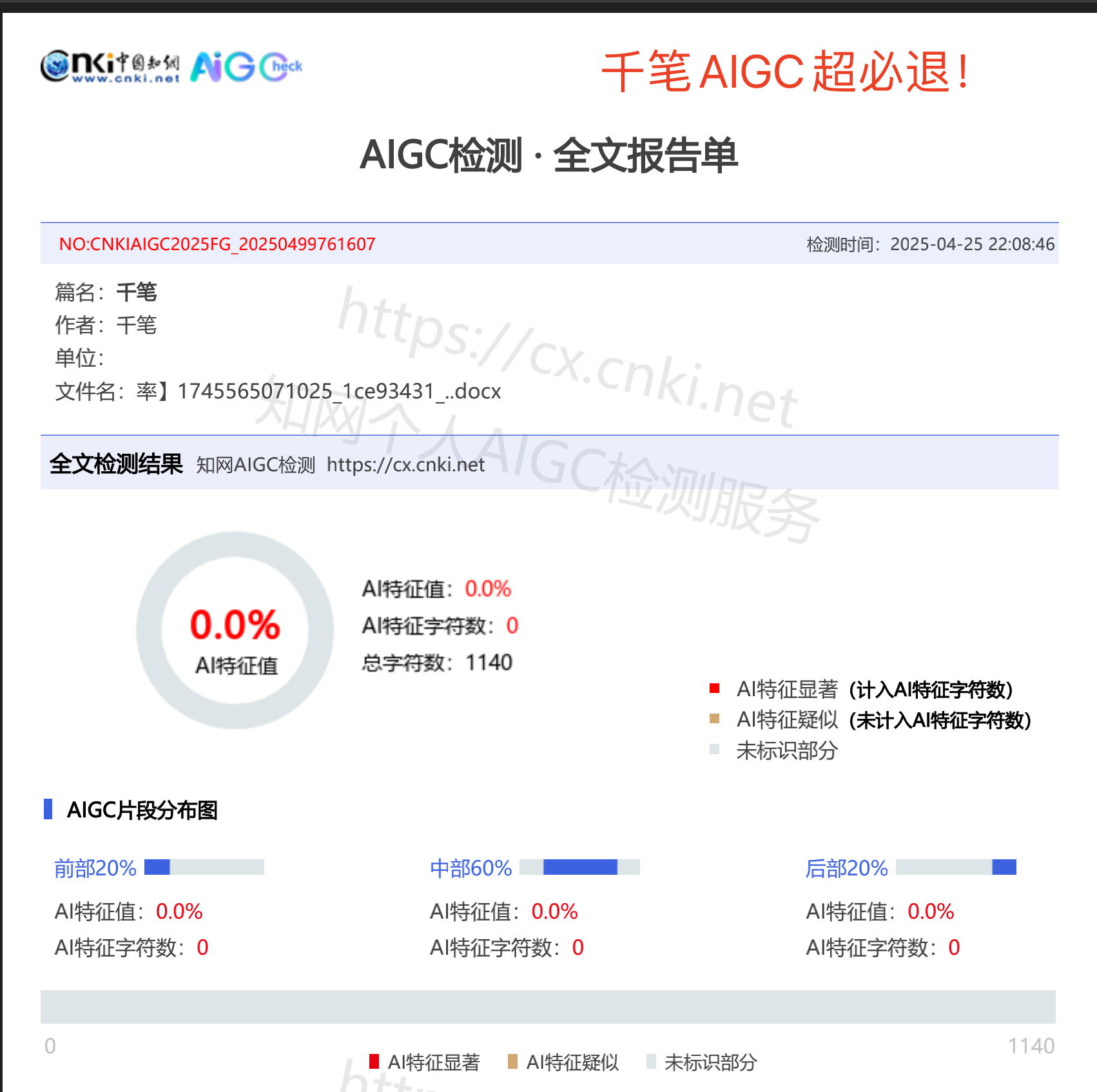撰写一篇3000字的英语论文,无论是本科生、硕士生还是其他学术人员,都是一个挑战。无论是文献综述、实验分析还是理论探讨,论文的构建需要严谨的逻辑、清晰的结构和精准的语言。在此,我们为你提供了一个全面的写作攻略,包括写作技巧和模板,帮助你高效完成3000字英语论文。
一、全英语论文写作的基本结构
一篇完整的3000字英语论文通常由以下几个部分组成:
Introduction(引言) - 约300-400字
目的:介绍论文研究的背景、问题、目的以及论文结构。
内容:概述论文研究的动机、研究问题的提出及重要性,简要介绍文献回顾,说明研究目标与假设。

Literature Review(文献综述) - 约600-800字
目的:展示相关领域已有研究成果,为研究奠定基础。
内容:综述前人的研究,分析他们的观点、方法及其不足,指出你研究的创新性。

Methodology(研究方法) - 约400-500字
目的:解释你进行研究的具体方法、工具和步骤。
内容:阐述数据收集方式、实验设计、样本选择、数据分析方法等。

Results and Discussion(结果与讨论) - 约800-1000字
目的:展示研究结果,并进行解释与分析。
内容:简要陈述你的研究结果,图表展示数据,分析结果的意义,与你的假设和前人研究的对比。

Conclusion(结论) - 约300-400字
目的:总结研究的主要发现,强调研究的贡献,提出未来研究方向。
内容:总结研究的核心观点,指出研究的局限性,展望未来研究的方向。
References(参考文献)
目的:列出所有引用的文献。
内容:确保参考文献符合规定的格式,如APA、MLA或Chicago等。
二、写作技巧与建议
明确研究问题与目标
在撰写论文之前,首先明确研究问题与目标。研究的动机和目标是你论文的核心,必须清晰表达,以确保论文结构的连贯性。做好文献综述的梳理
文献综述不仅是为了展示你对领域的了解,更是为了找出前人研究的空白。通过批判性地阅读相关文献,构建你的研究框架,并找出需要进一步研究的方向。严谨的研究方法
研究方法是你研究的基础,方法部分需要详细描述你收集数据的方式、选择样本的依据以及分析工具。确保方法部分具有可重复性,让其他人可以根据你的描述重现你的研究。数据分析与结果呈现
数据分析要清晰、简洁。使用图表、表格等方式有效呈现数据,并确保其准确性。在讨论部分,仔细分析结果的意义,避免过度解释或不做解释。精准的结论
结论部分不应重复讨论内容,而应总结研究的核心发现,并展望未来的研究方向。避免将结论部分写得过于笼统,尽量突出研究的创新性和学术价值。避免语言错误
全英语论文需要特别注意语言的规范性,确保语法、拼写和句式的准确性。使用在线工具如Grammarly,或请母语为英语的朋友或专业编辑润色你的论文。
三、3000字论文写作模板
下面提供一个简单的3000字论文写作模板,帮助你理清思路,快速上手。
Title: The Impact of Social Media on Mental Health
Introduction
The rapid growth of social media platforms in the past decade has significantly impacted daily life. While social media provides numerous benefits, there are growing concerns about its potential impact on mental health. This study aims to explore the relationship between social media usage and mental health outcomes, particularly focusing on anxiety, depression, and self-esteem. Through a review of existing literature and empirical research, this paper seeks to shed light on the effects of social media on mental well-being.
Literature Review
Several studies have explored the effects of social media on mental health. Smith et al. (2018) found that prolonged social media use is associated with increased levels of anxiety and depression among teenagers. Additionally, Johnson (2020) argues that the constant comparison of oneself to others on social media platforms negatively affects self-esteem. However, other researchers, such as Brown and Williams (2019), suggest that social media can also provide positive social support and reduce feelings of loneliness.
Methodology
This study employed a mixed-methods approach, combining qualitative interviews and quantitative surveys to assess the relationship between social media use and mental health. A total of 200 participants were surveyed, and 20 participants were selected for in-depth interviews. The survey measured social media usage time, anxiety, depression, and self-esteem levels, while the interviews provided qualitative insights into the participants' experiences.
Results and Discussion
The survey results revealed a significant positive correlation between social media usage and levels of anxiety and depression (r = 0.45, p < 0.01). Participants who spent more than 4 hours per day on social media reported higher levels of anxiety. The qualitative interviews further highlighted that participants often experienced feelings of inadequacy and isolation, particularly when exposed to idealized images of others on platforms like Instagram. However, some participants reported that social media also helped them connect with friends and access mental health resources.
Conclusion
This study indicates that excessive use of social media may contribute to mental health issues, particularly anxiety and depression. However, it also underscores the need for further research to explore the potential benefits of social media, such as social support and mental health awareness. Future studies should consider examining the long-term effects of social media use on mental health, as well as the role of different platforms in shaping mental well-being.
References
Brown, A., & Williams, L. (2019). The social benefits of social media: A double-edged sword. Journal of Social Research, 22(3), 50-60.
Johnson, M. (2020). Self-esteem and social media: A critical review. Psychology Today, 18(4), 35-42.
Smith, J., et al. (2018). Social media use and mental health: A systematic review. Mental Health Review Journal, 23(1), 20-30.
四、写作工具推荐
千笔AI论文: 用于语法检查和风格优化。
Hemingway Editor: 优化文章句子结构,确保清晰简洁。
EndNote: 管理参考文献,自动生成引文格式。
Turnitin: 检查论文的抄袭率,确保原创性。
Mendeley: 参考文献管理和共享平台。
五、总结
3000字英语论文的写作是一个系统性过程,涵盖了从选题到结论的多个步骤。通过清晰的论文结构、合理的写作技巧和可靠的工具,任何人都可以高效完成论文并提高语言质量。最重要的是,始终保持论文的逻辑严谨性和学术性,不断完善和优化内容,确保论文最终能够顺利通过审核并获得高分。

